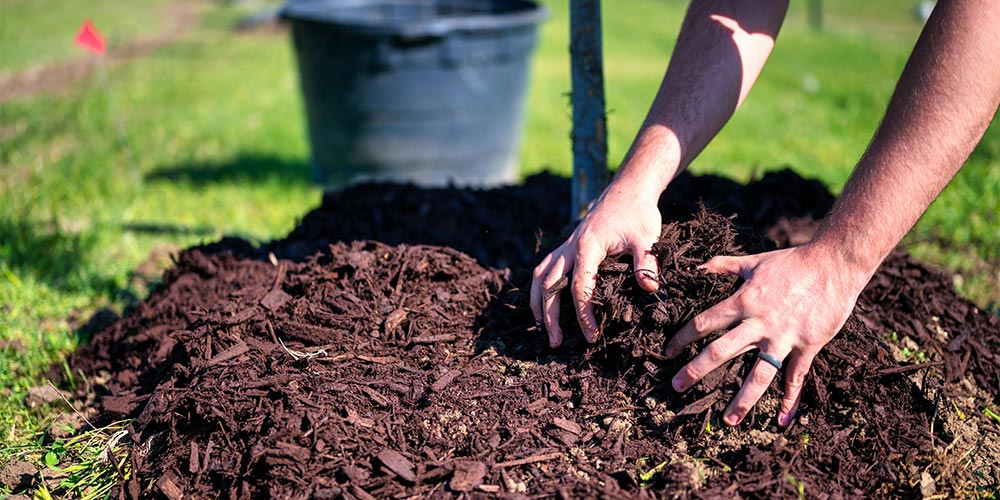
Mulching is a common practice for many gardeners, but beyond its well-known uses, it offers several hidden benefits that can transform your garden’s health and appearance. From improving soil quality to making garden maintenance more efficient, mulch does much more than you might expect. Discover Eco’s range of garden mulch and bark to find the best one for your garden needs. Let’s take a closer look at some of the lesser-known advantages of mulching and how it can benefit your garden year-round.
1. Boosts Microbial Activity in the Soil
One of the hidden benefits of mulching is how it enhances microbial activity in the soil. When you use organic mulch, such as bark or compost, it gradually decomposes and feeds the soil with organic matter. This process attracts beneficial microorganisms and fungi that help break down the mulch and enrich the soil. These microorganisms improve soil fertility, making it easier for your plants to absorb essential nutrients. Over time, this leads to stronger, healthier plant growth and a more robust garden ecosystem. Eco’s Woodland Garden Mulch is a great option to help boost your garden’s health and promote strong plant growth.
2. Creates a Barrier Against Soil Erosion
While mulch is often recognised for its ability to retain moisture, it also plays a critical role in preventing soil erosion. In gardens with sloped areas or beds prone to heavy rain, mulch creates a protective layer that holds the soil in place. Without mulch, rain can wash away topsoil and nutrients, leaving your plants with poor-quality soil. By applying a thick layer of mulch, you not only protect the soil from being washed away but also ensure that vital nutrients remain intact for plant growth.
3. Promotes Consistent Soil Temperatures
One often overlooked benefit of mulch is its ability to regulate soil temperatures. Whether it’s a scorching summer day or a frosty winter night, mulch acts as an insulating layer that shields plant roots from extreme temperatures. In the summer, it keeps the soil cool and prevents roots from overheating, while in the winter, it helps maintain warmth and protects roots from frost damage. This consistent temperature creates a stable environment for plants to grow, leading to healthier, more resilient plants.
4. Helps Suppress Weeds Without Chemicals
Most gardeners know that mulch can suppress weeds, but it’s worth emphasising how effectively it can do so without the need for chemical treatments. A generous layer of mulch blocks sunlight from reaching weed seeds, preventing them from germinating. This drastically reduces the amount of time and effort you spend weeding your garden. Using organic mulches like wood chips or compost offers an eco-friendly alternative to harsh chemical weed killers, making your garden safer for plants, pets, and wildlife.
5. Enhances Garden Aesthetics
Beyond its practical benefits, mulch can also improve the overall look of your garden. Whether you choose wood chips, bark, or compost, mulch adds a neat, well-maintained appearance to your beds and borders. Its dark, rich colour contrasts beautifully with green plants, giving your garden a polished, professional look. For those who want to take their garden aesthetics to the next level, mulch can be a simple yet effective solution to create a more visually appealing outdoor space.
Choosing the Right Mulch for Your Garden
While there are various types of mulch to choose from, it’s essential to pick the right one for your garden’s needs. Organic mulches like bark, wood chips, and compost are ideal for improving soil health and suppressing weeds. These mulches decompose over time, adding nutrients to the soil and promoting healthy plant growth. Inorganic mulches like gravel or stone are better suited for decorative purposes but may not offer the same benefits for soil health. When selecting mulch, consider your garden’s goals and the type of plants you’re cultivating.
How to Apply Mulch Effectively
To make the most of your mulch, apply it evenly to your garden beds, ensuring a depth of 2-3 inches. Be careful not to pile mulch directly against plant stems or trunks, as this can lead to moisture build-up and encourage rot. Spread the mulch out evenly, leaving some space around the base of each plant. This will provide maximum weed suppression, moisture retention, and temperature regulation.
Mulch is your garden’s friend
Mulching offers far more than just aesthetic appeal or weed control. From boosting soil microbial activity to preventing erosion and regulating temperature, the hidden benefits of mulching can significantly improve the health and vitality of your garden. Whether you’re an experienced gardener or just getting started, incorporating mulch into your routine is a simple yet powerful way to support long-term plant growth and sustainability. So, if you haven’t already, it’s time to explore the full potential of mulching and see the difference it can make for your garden.
